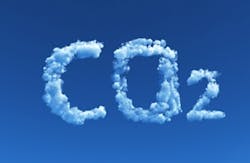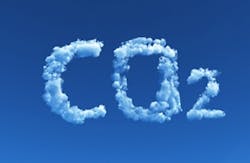Desalination CO2 reduction key aim of new global alliance
The Global Clean Water Desalination Alliance – H2O minus CO2 (GCWDA) was launched in Paris to reduce CO2 emissions from desalination plants.
The Alliance has an initial group of more than 80 signatories and was officially ratified on 26 November 26 2015.
Founding signatory, Masdar, Abu Dhabi’s renewable energy company, encouraged governments; energy, water and related industry stakeholders - including laboratories and research organisations; universities and NGOs to join the Alliance.
The Alliance's goal is to seek solutions that will "substantially reduce the projected increase in CO2 emissions from the desalination process, as global demand for drinking water continues to grow".
The Alliance’s action plan could see a decrease in emissions from 50MTCO2 (metric tons of carbon dioxide) up to as much as 270MTCO2 per year by 2040.
The action plan includes obtaining amplified commitment by all Alliance members to use clean energy sources to power new desalination plants and to retrofit existing plants, whenever possible.
Further focus is on improved energy efficiency of desalination processes, increased efforts on R&D and demonstration projects, better dissemination of innovative technologies, capacity building and analysis and formulation of adequate policies and regulatory frameworks.
The concept note of the Alliance underlines that the initiative will ensure the sustainability of the entire desalination process is taken into account beyond the sole issue of energy sources.
“The government of the UAE has long recognised the potential impact of climate change on the future of the country and the region. The UAE was in fact the first country in the region to set renewable energy targets and has recently announced a commitment to increase clean energy to 24% of the country’s total energy mix by 2021,” said Dr Ahmad Belhoul, CEO of Masdar.
Patricia A. Burke, IDA secretary general, said: "We have long been a champion of environmental responsibility in desalination practices including lower energy consumption and an increase in the use of renewable energy to power desalination, resulting in the reduction of CO2 emissions. This has been a goal of IDA's Energy and Environmental Task Forces, and we believe that the GCWDA initiative will bring us ever-closer to realising this objective."
Masdar launched a pilot seawater desalination programme earlier in November, targeted to dramatically reduce the energy intensity of desalination (read article).
The project offers four viable solutions for renewable-powered energy efficient desalination. Phase one of the programme will concentrate on demonstrating energy-efficient systems on a small scale for at least 15 months.
Stakeholders from industry, research institutions, universities and other organisations from the following countries have already pledged support to the Alliance including: Australia, Belgium, China, Comoros, France, Germany, Greece, India, Indonesia, Israel, Italy, the Netherlands, Japan, Saudi Arabia, South Korea, the United Kingdom, the USA and Singapore.
###
Read more
Desalination trials in UAE show 7% energy saving on Masdar target
Scaling up the Middle East’s renewable desalination
Solar-powered sweater desalination research contract signed in Abu Dhabi
Desalinate Newscast

